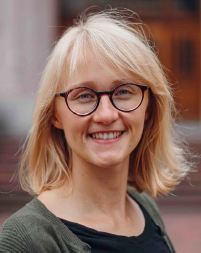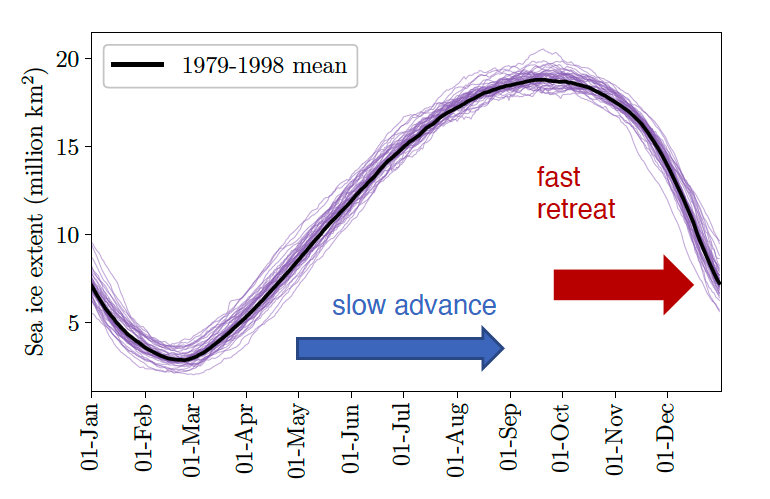 Understanding the asymmetry of Antarctic sea ice cycles
Understanding the asymmetry of Antarctic sea ice cycles
At the time of her Fellowship, Lettie Roach was a PhD student at the National Institute for Water and Atmospheric Research (NIWA), New Zealand. She currently works as an Associate Research Scientist at NASA GISS and Columbia University. USA. Her Fellowship was hosted by the University of North Carolina Wilmington (UNCW), USA, where she worked with Prof Till Wagner in May 2019.
Her project was titled “The influence of nonlinear physical processes on the seasonal cycle of Antarctic sea ice“.
The cycle of sea ice growth and melt in the polar regions is one of the largest seasonal signals on Earth. The goal of the Fellowship was to improve the understanding of seasonal cycles of Antarctic sea ice. The team was especially interested in a striking asymmetry in the seasonal cycle and the key drivers behind it. They conducted targeted experiments using idealised climate models. Lettie and her supervisor concluded that, due to a narrow peak of intense brightness in summer and long periods of low light in winter, a simple physical explanation could explain the observed asymmetry and thus clarify a long-running misunderstanding regarding Antarctic sea ice.

By working alongside Prof Till Wagner, Lettie had the opportunity to develop better intuition for fundamental climate physics. Working within his research group, she was able to benefit from their inclusive work culture and communication skills, which has since influenced the way she interacts with her students and mentees. Lettie continues to collaborate with Prof Till Wagner and, inspired by the SCAR Fellowship, has submitted a NOAA Climate and Global Change Fellowship proposal. This proposal was successful and now enables her to continue to work in this area.
Lettie has discussed her Fellowship work in various presentations, such as at the AGU Fall Meeting (2021) and at seminars at NASA GISS, Columbia Univeristy and Brown University (2022). The code, analysis of observational data and processed model resulting from the Fellowship project is publicly available here: https://zenodo.org/record/5865073#.YjHH5BDP15Y.
A paper discussing the work initiatied during the Fellowship has just been accepted at Nature Geoscience:
Roach, L. A., Eisenman, I., Wagner, T. J., Blanchard-Wrigglesworth, E., and Bitz, C. M.. Asymmetry in the seasonal cycle of Antarctic sea ice due to insolation (2022). Nature Geoscience (accepted).
Lettie says about the importance of the SCAR Fellowship:
The SCAR Fellowship has had a huge impact on my research, allowing me to explore a new research topic and new research methods. Eventually discovering the fundamental physics driving the asymmetric seasonal cycle was a truly satisfying scientific achievement, and I’m really glad that the SCAR Fellowship started us off on this path.
The full report is available here: Lettie Roach 2022 Fellowship Report and on the SCAR Fellows webpage together with the full list of previous SCAR Fellows and available reports.
The SCAR Early-Career Fellowship Programme is designed to encourage the active involvement of early career scientists and engineers in Antarctic scientific research, and to build new connections and further strengthen international capacity and cooperation in Antarctic research. The work must be carried out in a research group of a SCAR member country different from that of the applicant’s origin and current residence.
